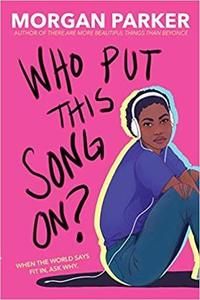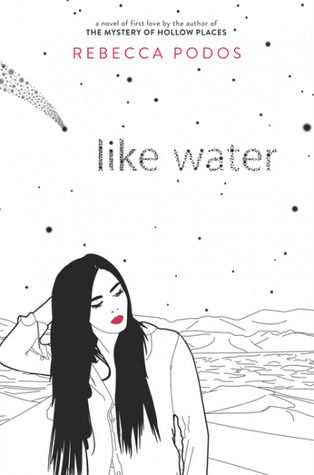I was an anxious queer teenager. I didn’t know I was pansexual at the time; I had internalized the biphobia around me and convinced myself I didn’t have enough proof to claim queerness, even as I crushed on women around me. I didn’t know I was anxious: I thought I was stressed, which to be fair, I probably was, striving to get all A’s while also making the varsity soccer team and taking dance classes and writing on the side and more. But I didn’t know what panic attacks felt like, and I didn’t know I had them. And thanks to my pediatrician, I had stopped trying to get help for my insomnia years prior. So I dealt with many things in silence, writing them off to normal stress.
I found my comfort in books. In the classics, in contemporary releases, in fantasy. But now, as an adult, I have started finding new YA releases, books that came out in just the last few years, that have hit me hard. Books that I needed as a young, anxious, queer teen: books that reflected on my own experiences, and that made me feel seen even now. I recognized myself in those young, anxious, often queer girls, and I wished fervently that I could send a care package of these books back to myself at age 15.
We Are Okay by Nina LaCour
It took me until I was 20 to realize that regular bouts of sudden tears and shortness of breath were not normal. It took me that long to name it and actually seek help. In this novel, as winter break begins, Marin has nowhere to go: her grandfather died before she left for college, and now she’s living a lonely life in the dorms over winter break. Her only light? Her friend from California is going to visit her soon. This book deals with anxiety, grief, and panic, in realistic and vivid ways. LaCour’s portrayal of panic attacks made me feel so seen, and paired with her lovely descriptions and a vivid queer energy, this book quickly felt like a part of my soul.
Ramona Blue by Julie Murphy
Ramona is a responsible young woman who wants to help her struggling family rather than head to college, despite her secret dreams of being a swimmer. Hurt when her summer love leaves town, she sinks her time into a friendship with childhood friend Freddie. But when those feelings begin to feel like something more, she starts to question. She’s based a lot around the label of “lesbian,” but what if that’s the wrong label for her? I found Ramona Blue enchanting and funny, and it’s not just a romance but a book about becoming comfortable and finding freedom in your body and identity. It speaks to one of the truths I could have used: it’s okay to not know yet, to question, to evolve your identity and allow room for change.

Who Put This Song On? by Morgan Parker
Maybe it’s because I was a 14-year-old with clinical depression in 2008 in the suburbs, but this book hit me deep in the heart in all the right ways. In this book, Morgan is a real teen with real depression struggling to feel normal, a Black emo girl at a mostly white school now having to deal with therapy and meds. This book has a vivid authenticity to it, from its portrayal of being a teen struggling to be taken seriously to its portrayal of depression and its isolating nature. When I was young, all the books I found about depression seemed to go to utmost extremes—and I love that Parker’s novel skips that, allowing for Morgan’s triumph to be as simple as survival.
Labyrinth Lost by Zoraida Córdova
Young me did not understand bisexuality or pansexuality. I thought I had to choose, straight or gay, and I thought I wasn’t “gay enough” to say I was gay, so I abandoned the whole idea. When I read the fast-paced, magical YA from Córdova, with its incredible world-building, realistic portrayal of strong anxiety, and a big heap of bi positivity, it was like a breath of fresh air. In this book, Alex is a Latinx bruja who doesn’t want her family magic—but when she tries to force her magic away, everything goes wrong. She must descend into Los Lagos to save her family.

Like Water by Rebecca Podos
This is the story of two teens, Leigh and Vanni, both mermaids at a local theme park, discovering their respective queer identities as they stir up feelings about each other. The narrator has a dry wit and her anxieties about the future, and the struggle and support of growing up in a small town, feature here. I loved the bisexual representation, and this book about discovering new identities, about allowing yourself to wonder and explore, to encounter new parts of yourself and welcome them in, spoke to me deeply.
When We Were Magic by Sarah Gailey
When queer, anxious Alexis accidentally kills a guy on prom night, her and her magical friends must come together for damage control. It’s a book about anxiety, about feeling you aren’t enough, about feeling like a burden—about what teenage girl solidarity and friendship truly looks like. Sarah Gailey is one of my must-buy authors, and their book about teen witches and their insecurities, abilities, and closeness, really cemented that for me. This novel could have reminded young me that anxious queer girls can be vividly magical in their own right.














